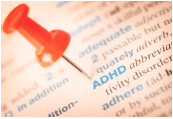No empirical data exists regarding the American Psychiatry Association’s proposed new diagnostic criteria for attention deficit hyperactivity disorder (ADHD). This study was conducted to examine the agreement between ADHD diagnosis derived from Diagnostic and Statistical Manual of Mental Disorders, Fourth Edition (DSM-IV), and DSM-V diagnostic criteria; it also reports sensitivity, specificity, and agreement for ADHD diagnosis. Children and adolescents (N = 246) were interviewed face to face by a clinician using ADHD diagnostic criteria for both DSM-V and DSM-IV. The rate of ADHD diagnosis using DSM-V was significantly higher than the rate detected using DSM-IV diagnostic criteria. The sensitivity of DSM-V diagnostic criteria was 100%, while its specificity was 71.1%. The kappa agreement between DSM-IV and DSM-V was 0.75. In addition, positive predictive value was 85.1%. Although all four newly added symptoms to ADHD diagnostic criteria were statistically more common in the ADHD group than the comparison group, these symptoms were very common in the children without ADHD. The authors suggest that the rate of ADHD diagnosis will increase using the proposed ADHD DSM-V criteria and that the newly added symptoms have a low specificity for ADHD diagnosis. Compr Psychiatry. 2012 Jul 16. PMID: 22809622
Home Research News Agreement between DSM-IV and DSM-V attention deficit hyperactivity disorder diagnostic criteria









